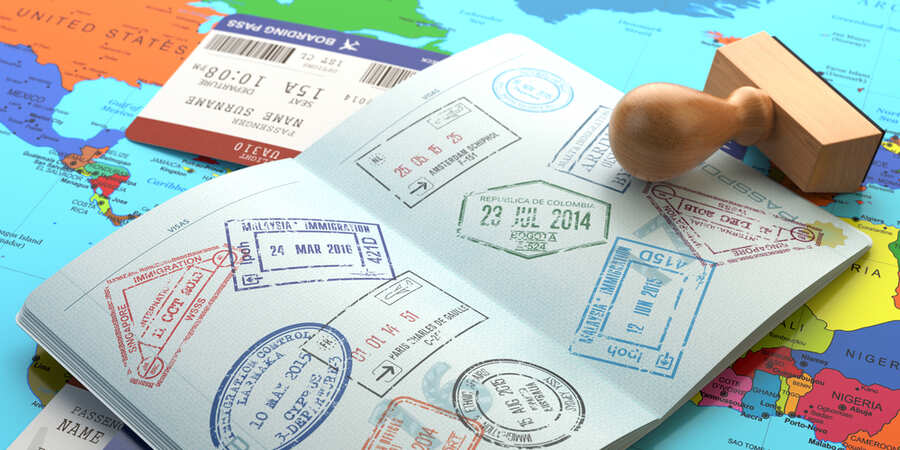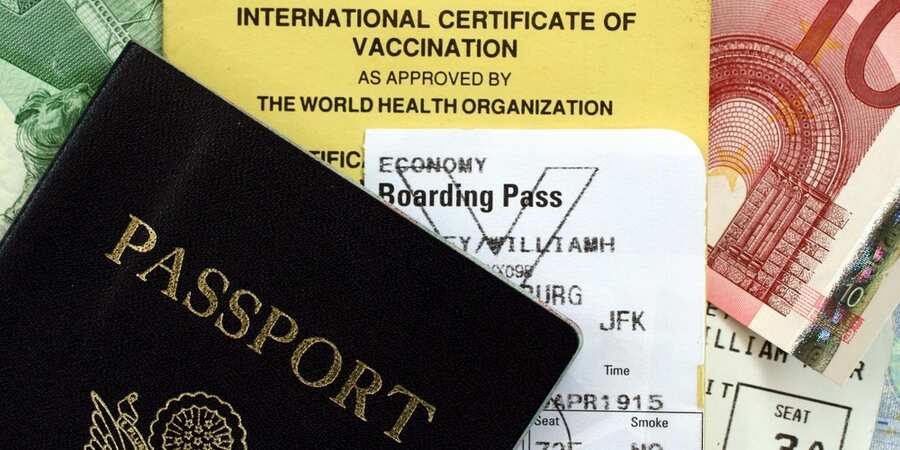Carrying proper documents is crucial during any international travel. Thousands of travelers face inconvenient situations at border points for incorrect or inadequate documentation each year. They fail to fulfil the travel requirements by destination as immigration authorities follow stringent rules. Passengers with improper travel documents may have to return from the border checkpoints. Hence, knowing what to carry and what not to carry is essential to ensure a smooth travel experience.
Checking the requirement of documents for visiting a particular overseas destination is necessary as the rules for travel documentation change according to the destination country, travel itinerary, and individual situation. Checking the updates and travel advisories is advisable as rules may change because of several factors.
Travel requirements by destination
1. Passport, Travel Visa, and National ID Card

You cannot enter a foreign country without proper personal identification. Ideally, keep several copies of the personal identification documents like a visa, passport, driver’s license, and national identification card, along with the original. The loss of a passport is a devastating experience if you are in a foreign country. You can effectively deal with the situation by approaching the local embassy if you have a passport copy. Keep copies of identification documents with the tour guide and in the luggage. You should carry the original documents with you during the travel. Checking the passport’s expiry date is necessary before planning a trip abroad. The expiry date should not be less than six months from your journey date. Each country has distinct rules about the minimum validity period of a passport.
2. Health Travel Documents

Immunization is a necessary precaution to protect oneself against diseases. Health documents like vaccination certificates are country specific. However, the rules to carry a COVID-19 vaccination certificate continue to be in place in most countries despite the fall in fresh cases. These are a few standard immunizations to consider before proceeding on overseas travel.
- COVID-19
- Hepatitis A/B
- MMR
- Polio
- Typhoid
- Yellow fever
- Rabies
- Encephalitis
Many countries are relaxing the COVID-19 rules, but these may change anytime. One must carry the latest COVID-19-negative certificate along with the vaccination record. Keep copies of these certificates, as these are mandatory at several places.
3. Travel Itinerary Details

A corporate travel itinerary is an essential element of smooth travel. Keeping records of flight tickets, accommodation bookings, hotel contact details, tour operator’s details, and dates of local tours with destinations is crucial. Maintain copies of travel itineraries besides storing a digital copy on your smartphone for easy accessibility. Keep the event passes and other necessary documents to avoid last-minute chaos if you are attending a trade fair or a seminar in a foreign country. Tickets for adventure sports or local cultural events are important documents to carry if you book these in advance.
4. Other Documents
Travel insurance for healthcare expenses and trip cancellation is advisable to prepare for eventualities. Carrying copies of travel insurance is helpful during any unforeseen situation. Most insurance service providers offer mobile apps to access travel insurance details instantly. Travel insurance is mandatory in many countries with specific limits of coverage. The COVID-19 pandemic made filling out passenger locator forms upon arrival at the border in many countries. Verify the document requirements while planning an international trip to avoid any hassles.
Conclusion
Traveling to an overseas destination is more thrilling than visiting domestic locations. Having all the necessary documents is the foundation of a satisfying and hassle-free international trip. The sheer variety of documents for overseas travel and the diverse requirements of different countries can be exasperating.
A systematic approach to organizing necessary documents well in advance ensures smooth travel to a foreign country and a safe journey back home. Business travelers and top corporate TMCs aid corporate travel and should rely on corporate travel management platforms like Paxes to facilitate flight and accommodation bookings, round-the-clock support, emergency alerts, and access to SOTO and regional Low Cost Carrier.
Travel Requirements By Destination FAQs
What is the purpose of a travel document?
The passport is the most vital travel document. It enables an individual to enter a foreign country or cross international borders.
How does a visa differ from a passport?
A visa is a stamp on the passport allowing entry, stay, and departure from a foreign country. It permits the holder to stay in a foreign country for a specific period. A passport is a document to establish the identity of a person. It facilitates legal entry into a foreign country.
How many types of visas are available for international travelers?
International travelers can avail of four types of visas: tourist visas, student visas, worker visas, and immigration visas.
What is a Schengen visa?
Schengen is a zone comprising 26 European countries. A Schengen visa allows the holder to stay and move within the area for the validity period, which can be a maximum of 90 days.
Does international travel mandate accommodation documents?
The rules for mandatory proof of accommodation may change with the destination country. You must provide proof of accommodation or an invitation to qualify for a Schengen visa.



